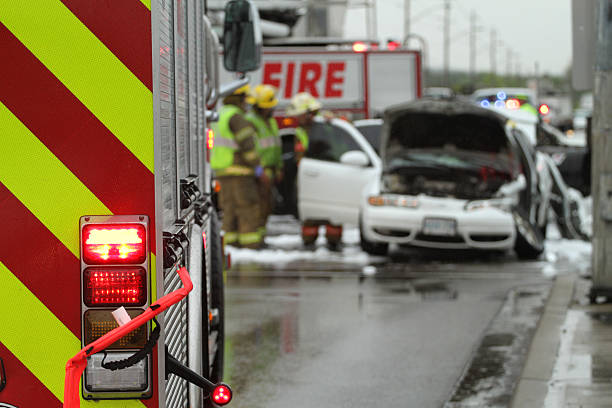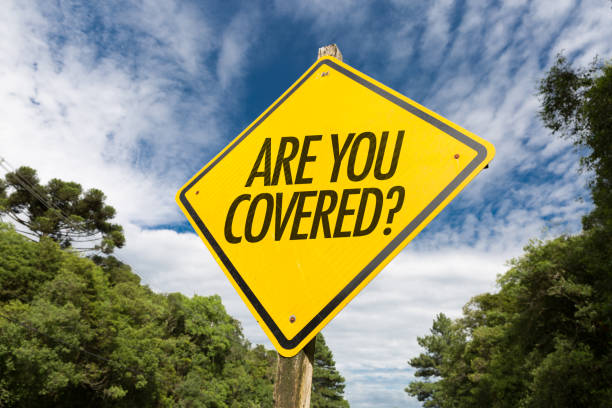Insurance Liability Car – If you drive a car, you need to have an insurance liability car. This is a type of car insurance that covers the costs of damages and injuries that you cause to other people and their property in an accident. It also pays for your legal fees if you are sued by the victims of the accident.
- Jones Act Law: What You Need to Know
- Options Trading Lessons: A Beginner’s Guide
- Best Family Life Insurance Companies of 2023
- PenFed Business Account: A Guide for Non-Government Organizations
- How to Sell Your Home Quickly: 6 Tips for Success
- What is PITI and why is it important for homebuyers?
What are the benefits of insurance liability cars?
Insurance liability car has several benefits for you as a driver:
- It protects you from financial losses if you are found at fault for an accident. Without insurance liability car, you would have to pay for the medical bills, lost wages, property repairs, and other expenses of the people you injure or damage in an accident. These costs can be very high and could ruin your finances.
- It protects you from legal troubles if you are sued by the victims of the accident. Without insurance liability car, you would have to hire a lawyer and pay for the court fees, settlements, or judgments that result from the lawsuit. These costs can also be very high and could affect your future.
- It helps you comply with the law. Most states require drivers to have a minimum amount of insurance liability car to legally drive a vehicle. If you don’t have insurance liability car, you could face fines, penalties, license suspension, or even jail time.
What are the types of insurance liability cars?
Insurance liability car has two main components: bodily injury liability and property damage liability.
- Bodily injury liability covers the costs of injuries or deaths that you cause to other people in an accident. It pays for their medical bills, pain and suffering, lost wages, and funeral expenses.
- Property damage liability covers the costs of damages that you cause to other people’s property in an accident. It pays for their car repairs, fence repairs, building damages, and personal belongings.
Both types of insurance liability cars have limits, which are the maximum amounts that your insurer will pay for each accident. You can choose your limits when you buy your policy, but they must meet or exceed the minimum requirements of your state.
How much does an insurance liability car cost?
The cost of insurance liability car depends on several factors, such as:
- Your driving record. If you have a history of accidents, tickets, or violations, you will pay more for insurance liability car than someone who has a clean record.
- Your location. If you live in an area with high traffic, crime, or weather risks, you will pay more for insurance liability cars than someone who lives in a safer area.
- Your vehicle. If you drive a new, expensive, or powerful vehicle, you will pay more for an insurance liability car than someone who drives an old, cheap, or modest vehicle.
- Your coverage. If you choose higher limits or add optional coverages to your policy, you will pay more for an insurance liability car than someone who chooses lower limits or only buys the minimum required coverages.
The average cost of insurance liability cars in the U.S. was $611 per year in 20201. However, this varies widely by state and by individual driver.
How much insurance liability car do you need?
The amount of insurance liability car that you need depends on your personal situation and preferences. However, here are some general guidelines to help you decide:
- You should buy enough insurance liability cars to cover your net worth. This is the total value of your assets (such as your home, savings, investments, etc.) minus your debts (such as your mortgage, loans, credit cards, etc.). If your net worth is higher than your limits, you could be sued for the difference and lose your assets.
- You should buy more than the minimum required by your state. The minimum requirements are often not enough to cover the full costs of a serious accident. If your limits are too low, you could end up paying out of pocket for the excess costs.
- You should consider adding other types of coverage to your policy. Insurance liability car only covers the damages and injuries that you cause to others. It does not cover your own medical bills or car repairs. To protect yourself from these costs, you should consider adding personal injury protection (PIP), medical payments (MedPay), collision coverage, comprehensive coverage, uninsured/underinsured motorist coverage (UM/UIM), and gap coverage to your policy.
Where can you buy an insurance liability car?
You can buy insurance liability cars from various sources, such as:
- Online platforms. You can compare quotes and buy policies from different insurers online using websites like NerdWallet, Forbes Advisor, or GEICO.
- Agents or brokers. You can get advice and buy policies from licensed professionals who work for one or more insurers. You can find agents or brokers near you using websites like Cover or Trusted Choice.
- Direct sellers. You can buy policies directly from insurers that do not use agents or brokers, such as USAA, Progressive, or Esurance.
How to compare insurance liability car quotes
One of the best ways to find the right insurance liability car policy for your needs and budget is to compare quotes from different insurers. You can do this by using online platforms, agents or brokers, or direct sellers, as mentioned above. When comparing quotes, you should consider the following factors:
- The coverage limits and deductibles. You should compare the same or similar levels of coverage and deductibles across different quotes to get a fair comparison. A deductible is the amount of money you have to pay out of pocket before your insurer pays for a claim.
- The optional coverages and discounts. You should check what optional coverages are included or available in each quote, such as collision, comprehensive, or UM/UIM. You should also check what discounts you are eligible for, such as safe driver, good student, or multi-policy discounts.
- The customer service and reputation. You should research the customer service and reputation of each insurer, such as their claims handling, financial strength, customer satisfaction ratings, and reviews.
How to file a claim for insurance liability car
If you are involved in an accident that triggers your insurance liability car policy, you should follow these steps to file a claim:
- Contact the police and get a copy of the accident report. This will help establish the facts and faults of the accident.
- Exchange information with the other parties involved in the accident, such as their names, contact details, insurance information, license plate numbers, and vehicle descriptions.
- Take photos and videos of the scene, the damages, and the injuries, if possible.
- Contact your insurer as soon as possible and report the accident. Provide them with all the information and evidence you have collected.
- Cooperate with your insurer and follow their instructions. They will assign an adjuster to investigate your claim and determine your liability and coverage.
- Review your settlement offer and negotiate if necessary. If you agree with the offer, sign the release form and receive your payment.
In Conclusion, Insurance liability car is a vital part of your car insurance policy. It covers the costs of damages and injuries that you cause to other people and their property in an accident. It also pays for your legal fees if you are sued by the victims of the accident. You should buy enough insurance liability cars to cover your net worth and more than the minimum required by your state. You should also consider adding other types of coverage to your policy to protect yourself from your own costs. You can buy insurance liability cars from various sources, such as online platforms, agents or brokers, or direct sellers.
Insurance Liability Car: Frequently Asked Questions
How much insurance liability car do I need?
A: The amount of insurance liability car that you need depends on your personal situation and preferences. However, some general guidelines are:
- You should buy enough insurance liability cars to cover your net worth. This is the total value of your assets minus your debts. If your net worth is higher than your limits, you could be sued for the difference and lose your assets.
- You should buy more than the minimum required by your state. The minimum requirements are often not enough to cover the full costs of a serious accident. If your limits are too low, you could end up paying out of pocket for the excess costs.
- You should consider adding other types of coverage to your policy. Insurance liability car only covers the damages and injuries that you cause to others. It does not cover your own medical bills or car repairs. To protect yourself from these costs, you should consider adding personal injury protection (PIP), medical payments (MedPay), collision coverage, comprehensive coverage, uninsured/underinsured motorist coverage (UM/UIM), and gap coverage to your policy.
Q: How much does an insurance liability car cost?
A: The cost of insurance liability car depends on several factors, such as:
- Your driving record. If you have a history of accidents, tickets, or violations, you will pay more for insurance liability car than someone who has a clean record.
- Your location. If you live in an area with high traffic, crime, or weather risks, you will pay more for insurance liability cars than someone who lives in a safer area.
- Your vehicle. If you drive a new, expensive, or powerful vehicle, you will pay more for an insurance liability car than someone who drives an old, cheap, or modest vehicle.
- Your coverage. If you choose higher limits or add optional coverages to your policy, you will pay more for an insurance liability car than someone who chooses lower limits or only buys the minimum required coverages.
The average cost of insurance liability cars in the U.S. is $611 per year in 2024.
Where can I buy an insurance liability car?
You can buy insurance liability cars from various sources, such as:
- Online platforms. You can compare quotes and buy policies from different insurers online using websites like NerdWallet, Forbes Advisor, or GEICO.
- Agents or brokers. You can get advice and buy policies from licensed professionals who work for one or more insurers. You can find agents or brokers near you using websites like Cover or Trusted Choice.
- Direct sellers. You can buy policies directly from insurers that do not use agents or brokers, such as USAA, Progressive, or Esurance.

